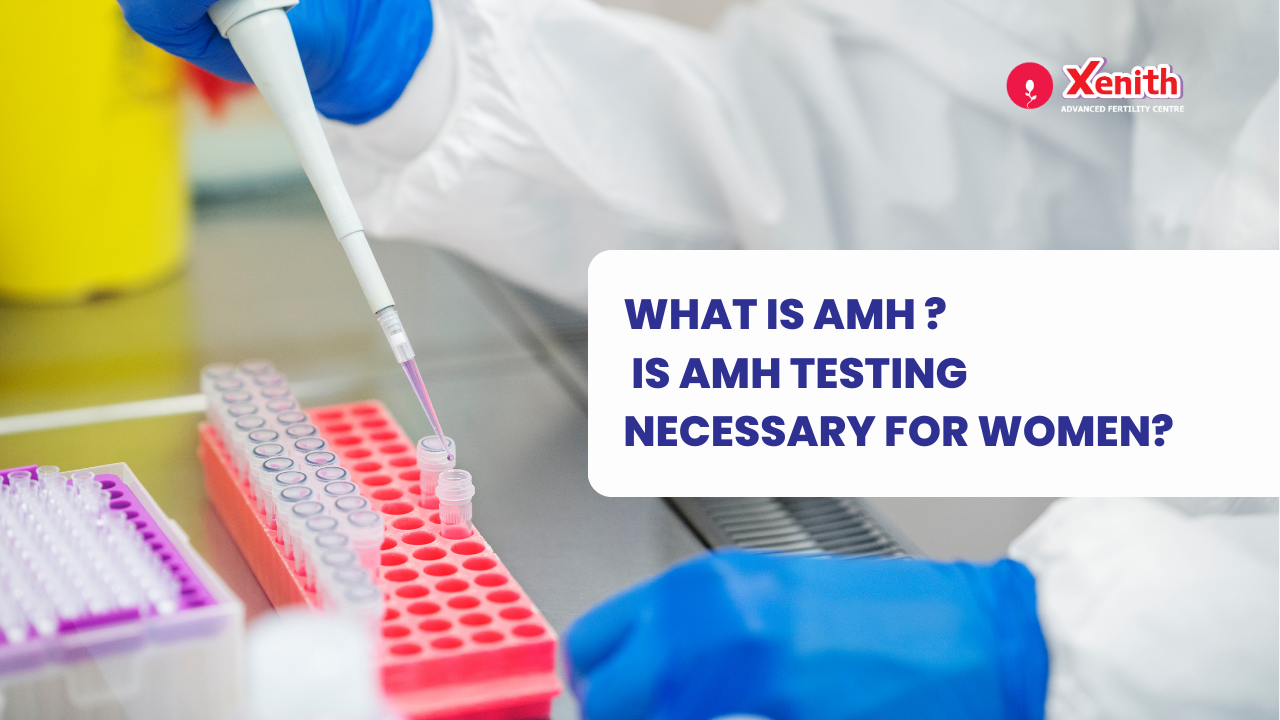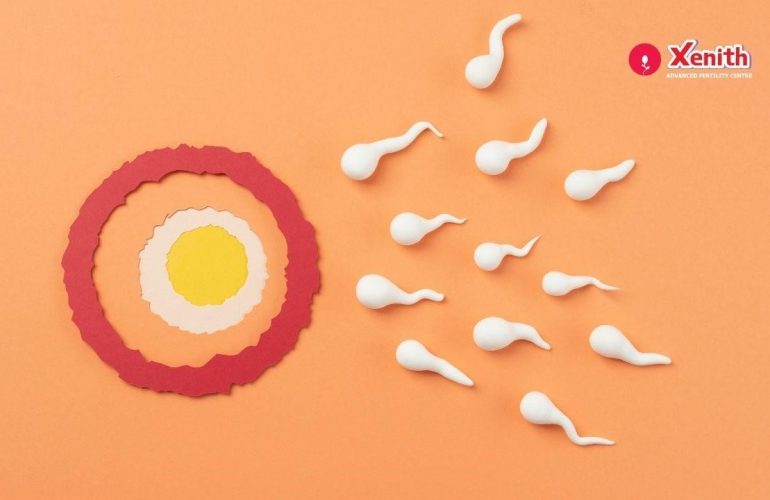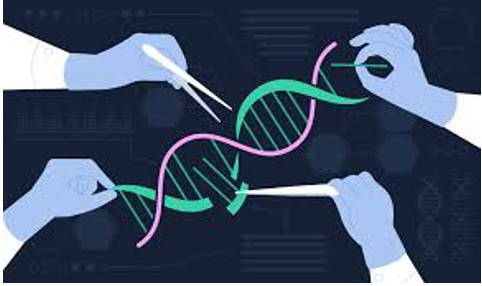Every woman is born with all the eggs she will ever have in her whole life and they lie dormant in the ovaries. During each menstrual cycle, some of these immature eggs will mature with usually only one egg being eventually released each month during ovulation while the rest of those eggs disintegrate. If one of these eggs is fertilized by a sperm, it could form an embryo and get implanted in the uterus lining resulting in a pregnancy.
What is AMH?

Free Thursday Consultation
Book Your AppointmentAMH stands for Anti-Müllerian Hormone and it is a hormone that is secreted by the granulosa cells in the ovarian follicles which are fluid filled sacs containing an immature egg in the ovary. Ovarian reserve is the number of eggs you have left in the ovary at that particular time. The level of AMH hormone is directly proportional to the number of eggs remaining in the ovary. So, a higher AMH level means you have a higher ovarian reserve and vice versa. AMH levels tend to peak around the age of 20 to 25 in women and then decline until menopause when no eggs are remaining. A simple, inexpensive blood test can be used to determine the AMH levels at any time of the woman’s cycle.
Significance of AMH testing
As fertility declines with age and as more women are choosing to delay having children, it’s important to have an idea of how fertile you actually are, so that you can make an informed decision about when to have kids. Low AMH levels do not mean that a woman cannot get pregnant naturally because it takes only one good egg along with sperm to become pregnant. If you don’t plan on having kids for a while, but your ovarian reserve is low, then freezing your eggs could be an option although these options should be discussed with your doctor. However, it must be noted that a good or higher AMH level does not always ensure higher fertility because it does not reflect the quality of the eggs produced which can diminish with age, genetics, your environment, your lifestyle like smoking, under certain health conditions like endometriosis, when taking certain toxic medications like the ones used for treating cancer and few other factors. Age is a major factor for fertility and as you age, the cell division of the immature eggs are more prone to errors. The eggs in the ovaries of different women mature at different rates and so some women could hit menopause much earlier. An AMH test could tell you if your ovaries are aging too quickly for example. Premature ovarian failure or aging means the ovaries have fewer eggs in them than they normally would in women of similar age. So, if there is a woman who is born with lesser number of eggs or a lower ovarian reserve compared to what we consider as normal, or if she is losing more number of eggs every month, then this woman is going to have a lesser number of eggs in her ovary compared to what we would expect as normal at that particular age. It has been found that Indian women have a lower ovarian reserve compared to caucasian women of the same age. There is a more rapid decrease in AMH levels with age in Indian women of reproductive age group compared to healthy Caucasian women. (1,2)
When is AMH testing recommended for women?
- If you are having problems conceiving-You might need to find out if you have low ovarian reserve which could explain issues with infertility.
- If you are undergoing an in vitro fertilization (IVF) procedure- During IVF, the woman’s ovaries are stimulated to produce multiple eggs at one time and these eggs are retrieved, fertilized with sperm in a laboratory setting and the fertilized embryo is transferred back into the woman’s uterus for implantation which could lead to a successful pregnancy. Higher AMH levels could suggest that you might respond well to fertility drugs and might not need as much whereas lower AMH levels could suggest that you might need higher doses of fertility drugs to respond well.
- If you are suffering from Polycystic ovarian syndrome (PCOS)- which is a hormonal issue sometimes causing multiple cysts to form on your ovaries, and/or high levels of male hormones and/or having irregular or skipped periods. Women with PCOS often have higher levels of AMH.
- If you are undergoing treatment for ovarian cancer- a decrease in AMH usually means that your treatment is working. If AMH increases, it may mean your treatment isn’t working or cancer has returned.
So, is AMH testing necessary for women? AMH testing can only give you partial answers to the big picture of fertility. Having low AMH levels might explain why it’s more difficult to conceive. Age plays a big role and the quality of the eggs cannot be tested until it is fertilized by the sperm and a genetic analysis is done on the resulting embryo. Other tests might need to be done concurrently like a transvaginal ultrasound, levels of other hormones etc. to get a more accurate picture of any issues with fertility. Low AMH levels could mean a declining fertility but all it takes is one healthy egg for pregnancy to occur and this could be more easily attainable by going through an IVF procedure. This is why its important to do a complete and proper assessment for fertility. The experts at Xenith Advanced Fertility Centre can give you knowledgeable advice on where you stand now in terms of your fertility, how to understand your test results and what can be done to boost your chances of having a baby. After evaluating your unique circumstances, they could provide a tailored treatment to improve your odds of successfully having a baby.




